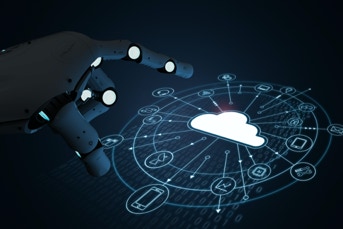A Simple Guide for Cloud Computing

In the age of remote work, streaming services, and smart devices, cloud computing has become the backbone of our digital lives. Whether you're uploading photos to Google Drive, watching Netflix, or collaborating on a project in Microsoft Teamsyou're using the cloud.
But what exactly is cloud computing, and why does it matter?
What Is Cloud Computing?
Cloud computing is the delivery of computing services like storage, processing power, databases, and software over the internet, instead of using your local computer or on-premise servers.
In simple terms: You are renting computing power or storage from someone else's data center instead of buying and maintaining your own hardware.Types of Cloud Services (The Cloud Stack)
Cloud computing is often broken down into three main categories:
1. IaaS (Infrastructure as a Service)
Provides virtualized computing resources over the internet.
Example: Amazon Web Services (AWS), Microsoft Azure, Google Cloud Platform.
Use case: Hosting websites, virtual machines, and custom apps.
2. PaaS (Platform as a Service)
Offers tools and frameworks for developers to build and deploy apps.
Example: Heroku, Google App Engine.
Use case: App development without managing servers.
3. SaaS (Software as a Service)
Delivers software over the internet.
Example: Google Workspace, Zoom, Dropbox, Salesforce.
Use case: Everyday apps accessed via web browsers.
Deployment Models
Public Cloud: Services delivered over the public internet (e.g., AWS, Azure).
Private Cloud: Cloud infrastructure used exclusively by one organization.
Hybrid Cloud: A mix of public and private clouds for better flexibility.
Real-World Uses of Cloud Computing
Small businesses use it for email, file sharing, and accounting software.
Startups use it to scale apps and websites quickly.
Enterprises use it to run global operations securely and efficiently.
Individuals use it for data backup, media streaming, and gaming.
Things to Consider
Data privacy and compliance (especially for healthcare, finance, etc.)
Vendor lock-in: Switching providers is not always easy.
Downtime risk: Rare but possible always have a backup plan.
The Future of Cloud Computing
With trends like AI, edge computing, 5G, and serverless architecture, the cloud is evolving fast. Businesses that embrace it gain speed, agility, and a competitive edge.